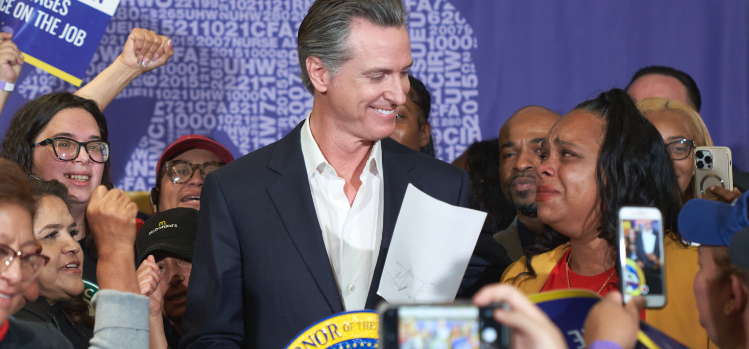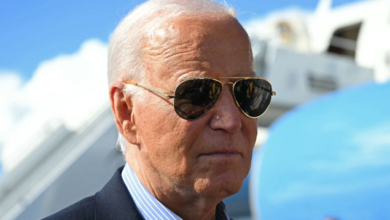Newsom’s Minimum Wage Increase in California Drives Down Fast Food Prices

California Governor Gavin Newsom’s recent minimum wage hike is having an unexpected impact: lower prices at fast food chains. The policy, aimed at improving wages for workers, is creating a ripple effect that benefits consumers as well.
The increase in minimum wage, which rose to $15.50 per hour statewide and higher in certain localities, was intended to boost the earnings of low-income workers and reduce poverty. While businesses initially feared higher labor costs might lead to increased prices, the opposite trend is being observed in the fast food industry.
Several major fast food chains in California have started to lower their prices, a move attributed to the higher minimum wage. This surprising development is driven by a combination of factors, including improved worker productivity, reduced turnover, and greater consumer demand.
Higher wages have resulted in better employee morale and efficiency, leading to faster service and improved customer satisfaction. Employees who feel valued and fairly compensated are more likely to stay longer, reducing hiring and training costs for employers. These savings are being passed on to consumers in the form of lower prices.
Additionally, with more disposable income, workers are spending more at their places of employment and other local businesses, driving up sales volumes. This increase in demand allows fast food chains to spread their fixed costs over a larger number of transactions, enabling them to lower prices without sacrificing profitability.
Economists studying the impact of minimum wage increases have noted these positive outcomes. According to research, higher wages can lead to better economic performance for businesses by fostering a more stable and motivated workforce. This, in turn, can enhance operational efficiency and customer experience.
Fast food chains such as McDonald’s, Taco Bell, and Burger King have all reported improved performance metrics in California since the wage hike. They attribute part of their success to the state’s proactive approach to worker compensation, which has created a more dynamic and supportive business environment.
Governor Newsom’s policy has sparked debates nationwide about the benefits of raising the minimum wage. Critics have long argued that such increases could lead to higher consumer prices and job losses. However, California’s experience suggests that, at least in some sectors, higher wages can coexist with lower prices and economic growth.
The positive outcomes observed in California’s fast food industry may encourage other states to consider similar wage policies. The interplay between wage increases and pricing strategies will likely be a key focus for policymakers and business leaders looking to balance economic growth with fair labor practices.
As California continues to monitor the effects of its minimum wage hike, the state serves as a compelling case study in the broader discussion about wage policies and their impact on the economy. The unexpected benefit of lower fast food prices underscores the complex and often counterintuitive nature of economic dynamics in the real world.





